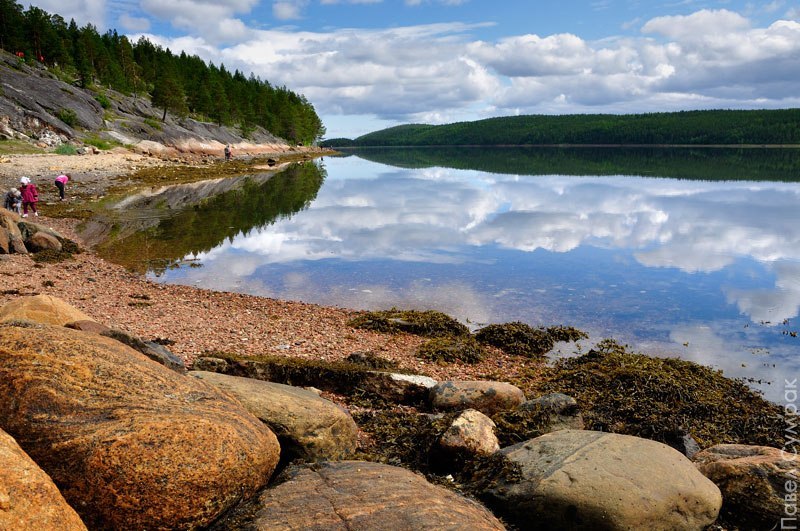The SWOT - Analysis for the CHUPA Region (Karelia) is the first step of a proposed project on “Introducing the participatory approach for sustainable coastal resource management in Russia”. The strengths (S) weaknesses (W) opportunities (O) and threats (T) to a sustainable development process will be assessed and evaluated.
This analysis aims to lay a foundation for the discussion, development and implementation of a sustainable development project in Chupa region and will cover major aspects of the livelihoods of the local community including social, environmental and economic dimensions.
The Chupa settlement is situated at the Western White Sea coast and is a part of the Barents eco-region. It is a quite thinly populated area of lakes, mires and forests. The traditional small-scale fisheries and other sea-related occupations are providing the main income for the local community. During the last years tourism has become also a source of income for the local people. The marvelous coastal and underwater landscapes, good possibilities for recreational fishing, diving activities, etc are attracting more and more tourists.
Like other coastal communities along the White Sea coast, the Chupa region struggles with a series of environmental and development problems. Local communities in Russia had been historically alienated by the centrally planned way of coastal resource management. Consequently, they regard regulations and limitations as artificial, imposed from “outside”, and therefore not legitimate. Although de jure coastal resources might be a property of the state, they are de facto treated as commons. This fact has lead to a legacy to poaching, a principal threat for coastal management and conservation in Russia.
Two other threats common along the White Sea are the negative impact of unregulated tourism and recreation, including “recreational” poaching and forest fires, and possible development of environmentally unfriendly industries, such as mining for gold, muscovite and platinum or oil exploration. The only solution is to make local communities feel in charge of their resources, to make it their own interest to prevent poaching and other unsustainable practices.
This development is unfortunately hampered by the underdevelopment of a civil society, but can be promoted by creating local interest groups, building their capacity to sustainably manage local resources, and improving legislation by attributing more rights to the local communities and empowering them economically.
The idea of assisting local coastal communities in finding sustainable solutions to the management of their resources has been jointly developed by EUCC – The Coastal Union, WWF – Russia and the Biodiversity Conservation Center (BCC) in Moscow. Since the commitment of Russia to the Earth Summit in 1992 the three partners have been one of the few that are active to secure sustainable coastal management in the country.
EUCC has been supporting Local Agenda 21 activities and has helped communities in developing their own coastal code of conduct in the Leningrad Oblast. WWF-Russia’s Marine Program has initiated some activities along Russia’s Pacific Coast, in particular planning for multiple use zones surrounding the marine/coastal protected areas and BCC has been active in promoting integrated biodiversity conservation along the coast.
Vassily Spiridonov on the White Sea

